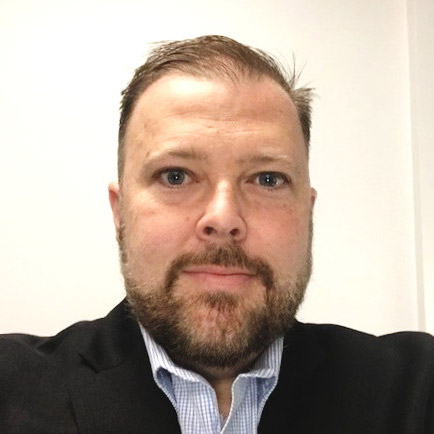A Solid Foundation with the CSUF Human Resources Management Certificate Program
"The practical insights from experienced instructors and networking opportunities also helped me apply best practices in my day-to-day work, ultimately strengthening my ability to contribute as a well-rounded HR professional."
Why did you choose the Human Resources Management Certificate program at Cal State Fullerton?
I had previously completed my undergraduate degree at CSUF and was familiar with University Extension’s business certificates. I chose the Human Resources Management Certificate program at Cal State Fullerton because of its strong reputation for providing practical, real-world HR knowledge that aligns with industry HR standards. The program’s comprehensive curriculum, taught by experienced professionals, helped me develop essential skills in employee relations, compensation, training/organizational development, and compliance. Additionally, Cal State Fullerton’s emphasis on hands-on learning and networking opportunities made it the ideal place for me to launch my career in the HR field.
How did earning your Human Resources Management certificate help you advance/switch your career?
Earning my Human Resources Management certificate in 2005 from Cal State Fullerton was instrumental in helping me transition from a recruitment-focused role to a broader HR Generalist position. While I had prior experience in recruitment, taking on additional HR responsibilities required a deeper understanding of areas like employee relations, compliance, and performance management. The program provided me with the knowledge and confidence to handle these new challenges effectively. The practical insights from experienced instructors and networking opportunities also helped me apply best practices in my day-to-day work, ultimately strengthening my ability to contribute as a well-rounded HR professional.
What specific skills or knowledge gained from the program have you applied in your current role?
One of the most valuable aspects of the HR Management Certificate program at Cal State Fullerton was learning from experienced professionals who brought real-world challenges into the classroom. One of my favorite professors, who worked at a local hospital, shared case studies every week that highlighted the complexities of HR decision-making. She always approached each situation with a strong commitment to doing the right thing for both the employees and the organization—a perspective that deeply resonated with me.
At the time, I wasn’t working in healthcare, but I kept those lessons in the back of my mind. When I later joined Cedars-Sinai, I found that same culture of integrity and people-first decision-making. The program gave me a solid foundation in employee relations, compliance, and strategic HR business partnerships, which I apply daily. More importantly, it reinforced the importance of balancing business needs with ethical responsibility, a principle that continues to guide me in my current role.
What trends do you see in the HR field that new graduates should be aware of?
One of the biggest trends in HR today is the growing use of Artificial Intelligence (AI). AI is transforming HR processes, from automating recruitment and screening candidates to predicting employee turnover and enhancing employee engagement through personalized insights. New HR professionals should also focus on developing data literacy skills, as HR teams increasingly rely on analytics to make informed decisions about workforce planning, compensation strategies, and diversity initiatives. Understanding how to interpret HR metrics and use AI-powered tools will be essential for driving business success. Additionally, trends like remote/hybrid work and employee well-being continue to shape the field. Graduates who can combine AI proficiency with strong human-centered leadership will be well-positioned for success in the evolving HR landscape.
Have you maintained connections with other alumni, and have these relationships been beneficial?
Yes, I have maintained connections with other alumni, and these relationships have been incredibly beneficial. Through networking opportunities, including my involvement with my local PIHRA chapter, I’ve been able to share ideas, discuss industry trends, and gain valuable insights from fellow HR professionals. Some of my colleagues from PIHRA even have connections to Cal State Fullerton, which has further strengthened my professional network.
What advice do you have for students entering the certificate program?
Approach the program with both curiosity and intention. The Human Resources field is more than policies and procedures—it’s about people, strategy, and impact. While technical HR knowledge is essential, the real value comes from understanding how to apply it thoughtfully in real-world situations.
Philosophically, embrace HR as both an art and a science. The art lies in emotional intelligence, ethical decision-making, and fostering workplace
culture. The science comes from understanding employment law, leveraging data for
strategic decisions, and integrating technology like AI to enhance HR functions. Balancing
both will make you a more effective HR professional.
Tactically, immerse yourself in every opportunity. Engage with instructors, ask challenging questions, and apply concepts to your current
or future roles. Take advantage of networking opportunities—join HR organizations
like PIHRA or SHRM, connect with alumni, and seek mentorship. The relationships you
build will be as valuable as the knowledge you gain.
Finally, stay adaptable. The HR landscape is evolving rapidly. Keep an open mindset and a commitment to
continuous learning will position you not just to succeed but to lead in the field.












